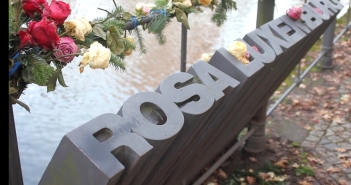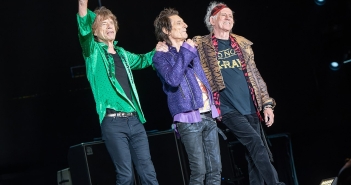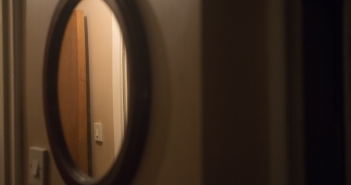I met Vladimir Putin once.
Or, at least, I was in the same room as him, no more than thirty or forty feet away, for several hours. Not much further than Macron recently in Moscow.
In August and September 2000, the last time Ireland was lobbying for a seat at the UN Security Council, I was an intern of the Irish diplomatic corps at the United Nations in New York.
My job was to record the speeches of the Heads of State. I was present for the speeches of the heads of state and government at the Security Council and General Assembly, including Bill Clinton, Yasser Arafat, and Fidel Castro.
I felt, even then, that Putin’s energy was very dark – a psychopath perhaps, devoid of empathy.
There is no doubt in my mind that this war is morally unjustifiable and wrong, despite the questionable wisdom of expansionist Western foreign policy (from a Russian perspective).
At the same UN summit in 2000, Tony Blair gave the most incredible speech. I was taken in, hook, line and sinker, by his incredible rhetoric and passion. His forked tongue only became apparent later. How could we be so manipulated?
A false representative of the light you could say. That which appears to be of the light, but is deceiving.
Whether by intent, or design, is another question, but nonetheless he is a man with the blood of many on his hands. Of course, he can still argue that the war in Iraq was justified.
That’s what they alway say, these power-hungry men, as the blood of innocents flows. For the victors, that is how history is written.
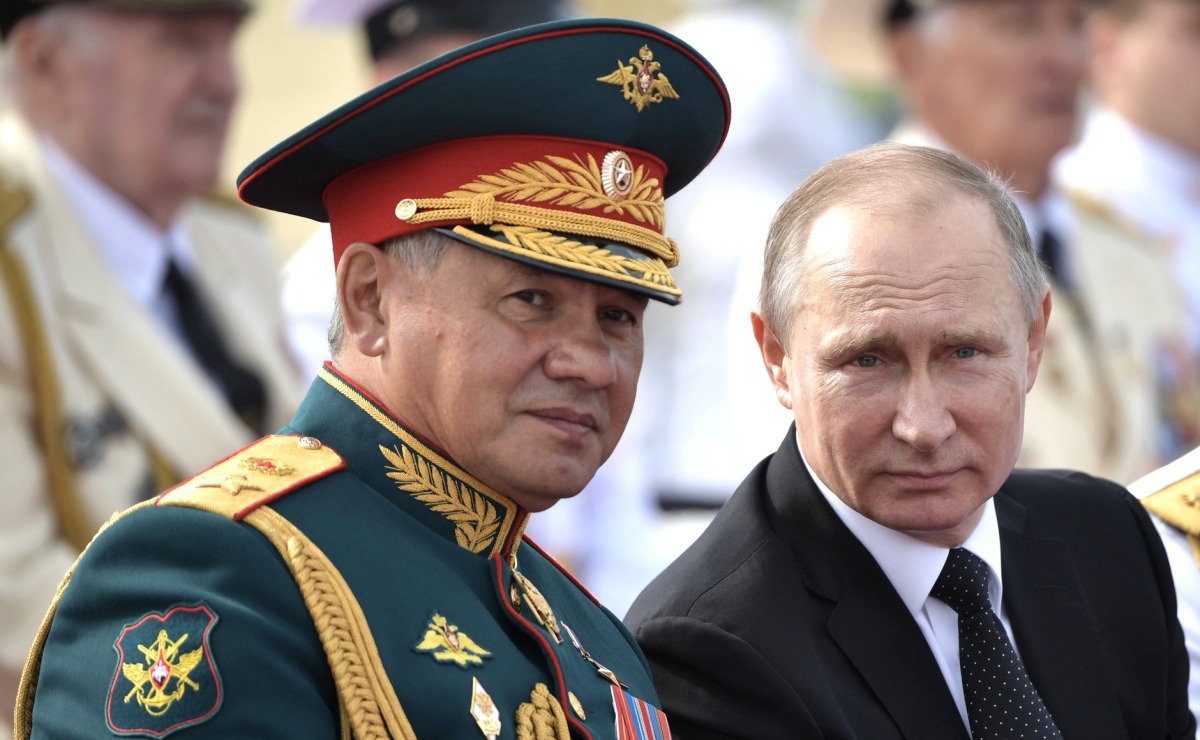
Putin and his long-time confidant Defense Minister Sergei Shoigu.
Evil in the World
There is no doubt in my mind that evil exists. The light exists, the dark exists, and the false light exists. The false light is that which masquerades and deceives: a complex Luciferian archetype.
We like to believe that we are on the side of good, and the ‘other’ side is evil. The truth is much more complex, and permeable. In a world where we like to define things as black or white, there are many shades of grey.
Good people can do unspeakable acts of evil, while even evil acts can have positive consequences.
Anger is sometimes a necessary and appropriate emotion when our boundaries are violated, on a personal or national level. Sometimes, in the face of unprovoked aggression, the only option is to fight back.
When we are feeling strong emotions, however, we are open to manipulation. Any time I feel a strong emotion of anger or fear due to a situation in my life or through what I see in the media – as I am feeling now – I ask myself, am I being manipulated? If so, by who, and for what end?
Who will benefit, if due to my anger and dismay at the brutal and morally wrong treatment of Ukrainian civilians, I somehow begin to fear or hate Russia or Russians?
What if I decide, in my anger, to fan the flames of hatred, anger, and war, rather than douse them? Are we to support the spread of this conflict, rather than hope for peace?
If there is one thing I have learnt over many years of diving deep into the metaphysics of light and dark it is that there is much that we are unaware of. We are all pawns in a greater game than we are aware of, you could say.
If it turns out that the game is rigged, and no matter which side seems to come out on top, the house always wins, then the only option is to stop playing the game.
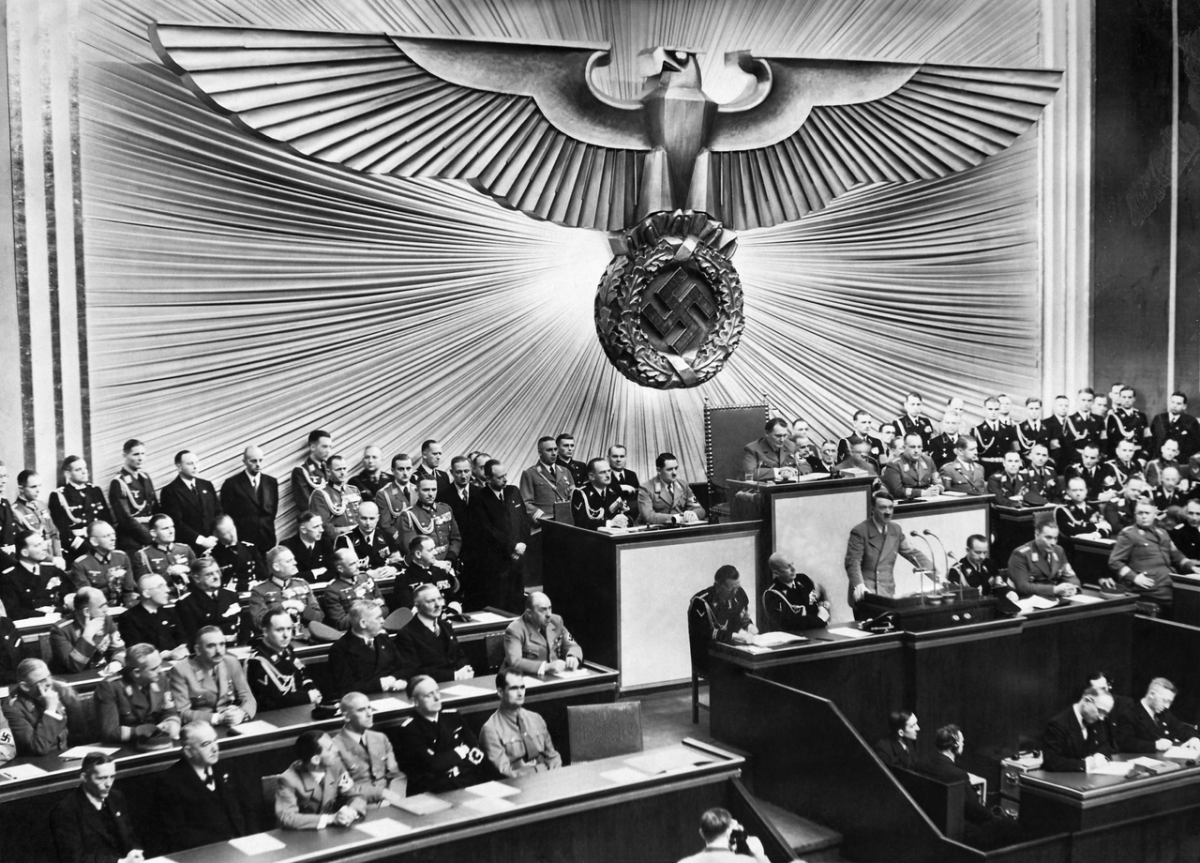
Hitler’s prophecy speech of 30 January 1939.
What is the Influence of Evil?
The genius of evil is that it influences us through our deepest fears and weaknesses. If, for example, your deepest fear is failure, being attacked, overwhelmed or destroyed. Perhaps this is the result of an unsafe and traumatic childhood.
This could manifest as paranoia, fear, or deepest shame at the loss of personal or national prestige, as is perhaps the case with a ‘strongman’ such as Putin. This is perceived as a threat to your very existence.
When some external event triggers this terrible internal fear, the very personal and overwhelming nature of this trigger is how evil influences a person. Evil finds our unconscious hidden weaknesses, and exploits them ruthlessly.
How do we recognise the influence of evil on ourselves? By hating another person, race, or nation, we are acting under the influence of evil.
This is the genius of evil: it realizes our deepest fears through the prism of our distorted perceptions. It preys on our weaknesses, separates us, divides us, makes us hate instead of love.
It is rare indeed, for someone to wake up in the morning saying “today I choose to be evil”. There are also those who can be described as pure evil – consciously evil – in the sense of acting with intentional malice, but these people are rare.
For the most part, evil slides in unseen, unconsciously, through our psychic blind spots. What lengths would you go to, to avoid your deepest fears? To avoid a perceived existential threat to you, your family or nation? This is how ‘normal’ people do the most terrible things. Evil locates our deepest fear and weaknesses, plays on them, magnifies and exploits them.
Like a computer virus exploiting a line of faulty code, evil exploits the faulty code of the human race. Shame, fear, anger, and trauma are the gateways into the body, poisons, faulty code, through which evil may stem, if allowed. These are known as the three kleshas or poisons of Mahayana Buddhism: ignorance, attachment and aversion, from which evil arises.

Projection of the Shadow
The great psychiatrist Carl Jung elaborated on the projection of the shadow being the greatest moral threat of our age.
A threat to the very future of humanity, and one the majority of people are utterly unaware of.
We psychologically project that which is disowned, unbearable and unconscious in ourselves, onto the other, thereby ridding ourselves of the need to make conscious decisions, take responsibility for our actions and integrate our experiences.
Thus Jung writes in Archaic Man that ‘Projection is one of the commonest psychic phenomena… Everything that is unconscious in ourselves we discover in our neighbour, and we treat him accordingly.’
He adds in Visions: Notes of the Seminar Given in 1930–1934:
Modern people … are ignorant of what they really are. We have simply forgotten what a human being really is, so we have men like Nietzsche and Freud and Adler, who tell us what we are, quite mercilessly. We have to discover our shadow. Otherwise we are driven into a world war in order to see what beasts we are.
If we do not acknowledge and own our shadow, we project our inner darkness onto the unfortunate recipients of our projections, as human beings have been doing for millennia of wars and cycles of destruction.

Ballads of bravery (1877) part of Arthurian mytholog by Lorenz Frølich.
Mythology and Psychology
Invariably, humans fall pretty to some great mythology, whether it is nationalism, tribalism or religious belief, which assures them that their cause is just.
We are not far removed from the Crusaders in this regard, who believed they were saving Jerusalem from heathens – in the twenty-first century as much as in the twelfth.
The psychological projection of the shadow is how mostly men are capable of inflicting barbarous acts of evil onto the ‘other’, who has generally already been thoroughly dehumanised and demonised.
Recently, a former officer of the US Navy Seals Special forces, one of the men who led the hunt for Bin Laden, told me how easy an operation this was to undertake.
He said that one of his main responsibilities in Afghanistan and Iraq was to keep his men in line, reminding them of the humanity of the enemy. In a warzone, how easy it must be to forget.
In his book on evil The Lucifer Effect, the psychologist Phillip Zimbardo, who also designed the Stanford Prison experiment, wrote:
I don’t believe anybody’s inherently evil. I believe we’re inherently good. And until they get put in a bad barrel. And there are a lot of bad barrels. A lot of jobs that we take encourage us to cheat, to lie…. If you’re a prison guard, afraid that prisoners are going to attack you and you have to create a false illusion that you’re domineering, you’re dominating them, you’ll shoot to kill then that’s the image. I believe in the goodness of human nature. And it’s being put into situations that corrupts that.
Zimbardo defines evil as exercising power to intentionally harm (psychologically), hurt (physically), destroy, or commit crimes against humanity.
From his psychological analysis of the US soldiers at Abu Ghraib who committed atrocities on the Iraqi POWs, Zimbardo shows that evil is situational.
Like it or not, we all have the potential to be a Nazi prison camp guard in us, given the right situation and dehumanisation of the enemy.
The Russian people have perhaps a greater understanding of this than most, given their brutal history and capacity for resilience and suffering. As one of their greatest novelists, Aleksandr Solzhenitsyn, put it: ‘the line dividing good and evil cuts through the heart of every human being.’
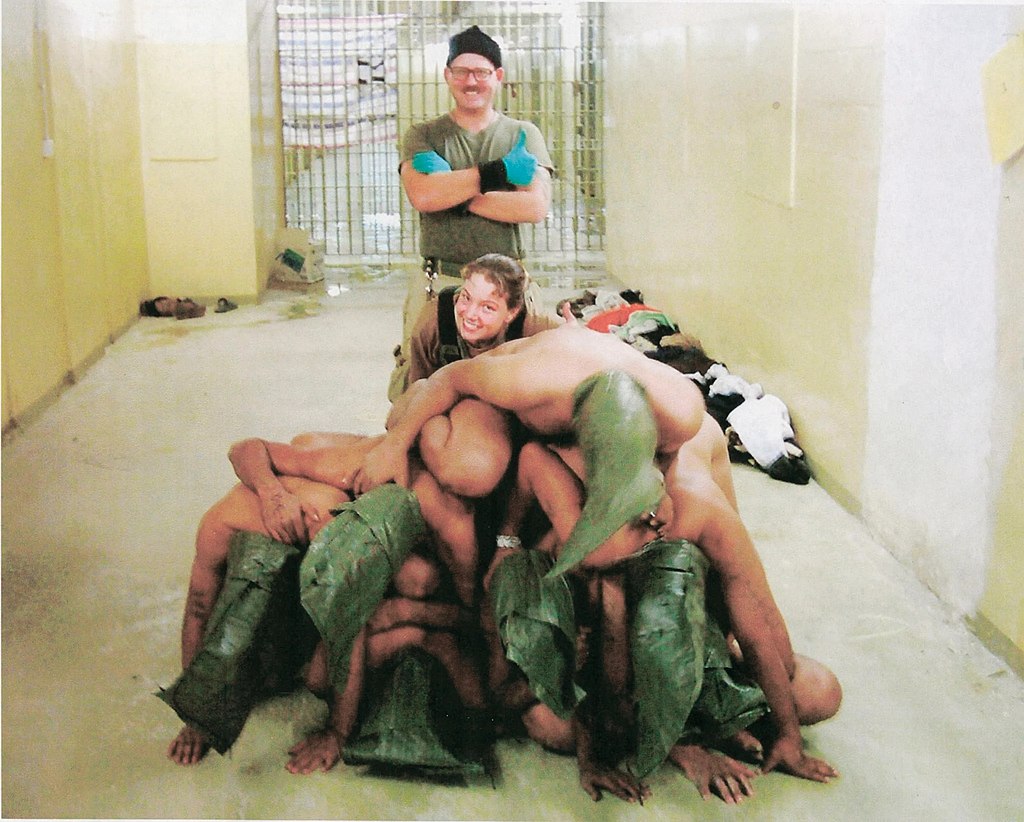
Sabrina Harman poses for a photo behind naked Iraqi detainees forced to form a human pyramid, while Charles Graner watches.
The Red Peril 2.0
How easy it is for us in the West to demonize the Russian threat, the hapless Slavic soldier from the steppes, conscripted as they have been for centuries to die as cannon fodder in a war they did not want.
This appears to be a reawakened Communist threat. Indeed, the idea of invading hordes from the east is a deep fear ingrained in the West, since the time of Genghis Khan and beyond.
In recent times it has been the threat of militiant Islam, the Muslim horde overrunning Europe, but our collective Western shadow is now projected elsewhere.
In some bizarre, surreal joke of history, we are apparently witnessing Chechen fighters, suffering from severe historical amnesia, from a land so terribly brutalized by Putin, take part in the invasion of Ukraine.
Likewise, and in a perfect mirror of a paranoid Putin – a dinosaur whose thinking is conditioned by bipolar geopolitics of the Cold War and Great Game of the nineteenth century – the West with its expansionist foreign policy represents a threat to the very survival of his beloved Russia.
Apparently, this existential threat is to be countered at the cost of total war.
Ukraine and the West believes it is protecting itself from the threat of Russia, as has proved to be the case.
Putin and his acolytes believe they are protecting Russia from military encirclement as a result of the eastward expansion of NATO since the end of the Cold War. These have become two disastrous self-fulfilling prophecies. Thus both perspectives have turned out to be valid on their own terms.
It’s history repeating itself, even so far as Putin making the same strategic mistakes as Napoleon in 1812 and Hitler in 1942 in greatly underestimating the vastness of Ukraine and over-extending supply lines.
Hitler, of course, committed the same folly in reverse in the 1930s, emphasizing the need for Lebensraum, living space, for the German people, who were apparently threatened by the great Slavic hordes to the east.
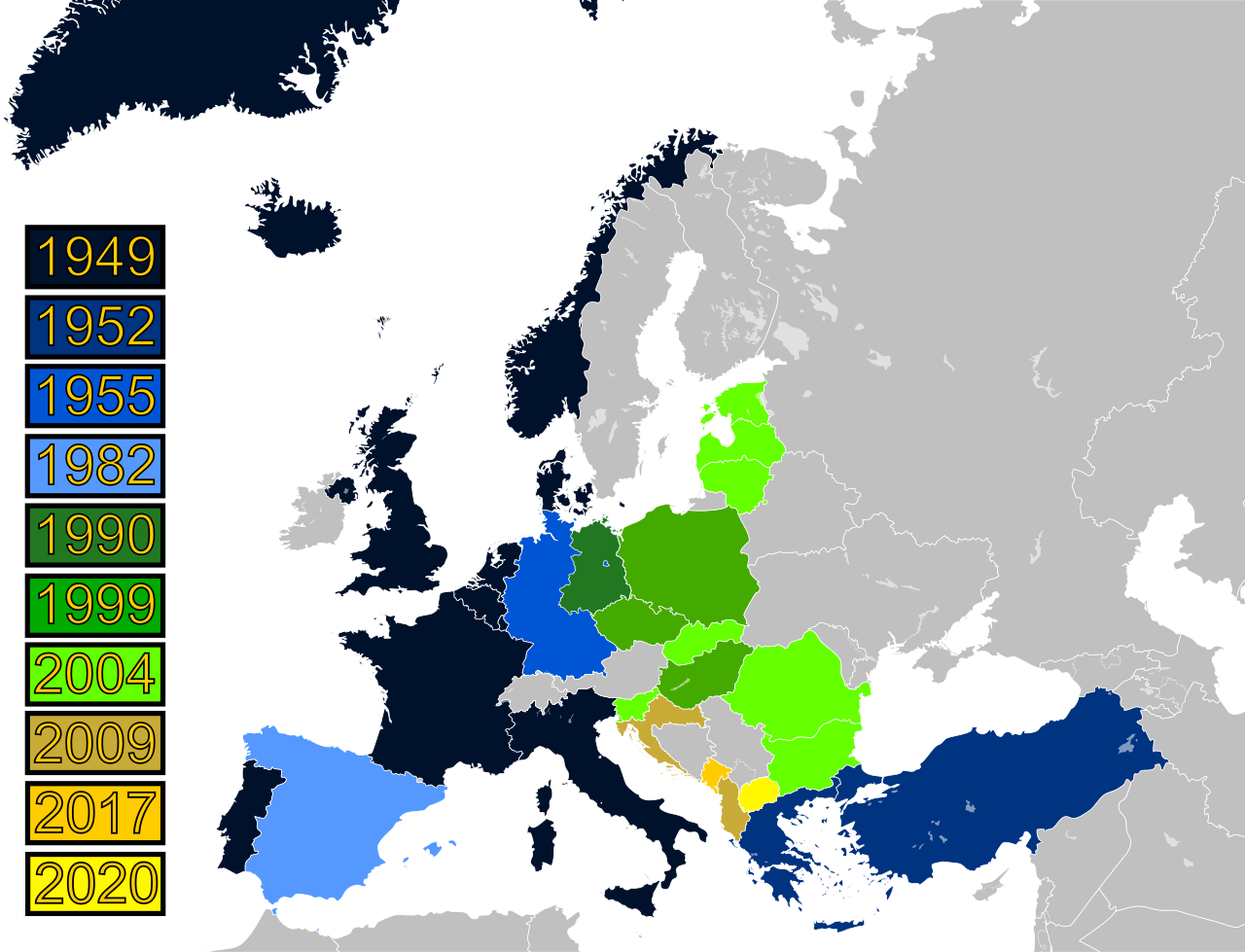
Hidden Forces
What would you do, if you felt as if your nation or family was under an existential threat, and only you had the vast power to stop it?
Do you think you would commit acts of evil to ‘protect’ yourself, believing this to be for the highest good in the circumstances?
There are hidden forces at play here. I use the word hidden intentionally, knowing that some will understand what I am trying to say. Those who have ears to hear will hear.
How else can we make sense of the ritual of bloodletting that so-called rational actors seem to periodically engage in, most clearly perhaps in the massacres of the First World War, when the most ‘civilized’ of nations sacrificed their best and brightest.
For what? How could humans behave in such a barbaric and irrational way?
Human beings often operate like actors on a stage, contending with forces greater than we can imagine. These might be described as the anabolic and catabolic forces of nature, involving endless cycles of growth, death, decay and rebirth.
My first experience with ayahuasca on Maui, Hawaii many years ago, demonstrated this to me very clearly. For whatever reason, I did not fear looking into the darkness. That night I left the safety of the ceremony and went out alone to stare into the unknown of the dark jungle.
Instead of fearing the dark, I wanted to understand it.
Nietzsche warned: ‘Beware that, when fighting monsters, you yourself do not become a monster … for when you gaze long into the abyss. The abyss gazes also into you,’ but this was not my experience. I found that looking into the abyss gave me a greater understanding of the world.
Jung, so well versed in ancient knowledge and metaphysics, brought these themes to a psychological level, writing
The sad truth is that man’s real life consists of a complex of inexorable opposites—day and night, birth and death, happiness and misery, good and evil. We are not even sure that one will prevail over the other, that good will overcome evil, or joy will defeat pain. Life is a battleground. It always has been, and always will be (Carl Jung, Approaching the Unconscious).
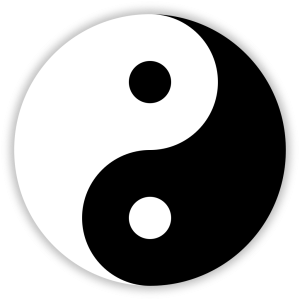
The Metaphysics of Light and Dark
We live in a world characterised by duality – light and dark, good and evil. These are two sides of the same coin; you cannot have one without the other.
Irrespective of anyone’s spiritual beliefs, you may still find useful insights in spiritual traditions on the nature of evil.
In the ancient Zoroastrian tradition, it was believed that the universe is a battleground between Good (Ahura Mazda) and Evil (Angra Mainyu). Angra Mainyu is not God’s equal opposite, but the destructive energy that opposes God’s creative energy.
It is essential for us to remember that this battle is not external to us as humans. It is an internal process in everyone.
Even in the Bible, Isaiah 45:7 says, ‘I form the light, and create darkness. I make peace, and create calamity. I am Yahweh, who does all these things.’ In other words, according to an Old Testament view, Yahweh (God) is the source of all things, light and dark.
The Taoist yin yang symbol captures the essence of this most beautifully. The seeds of light grow in the dark, the seeds of dark grow in the light.
Other metaphysical systems were all too aware of this too – that too much of anything becomes its opposite. The Mediaeval Jewish Kabbalists saw evil as a result of unbalanced force. For example, the benevolent dictator, motivated by the seemingly altruistic aim of protecting his people, can easily become a tyrant. The road to hell is paved with good intentions, as the folk wisdom goes.
In a tremendously complex world bedevilled by unintended consequences, we are often unaware of the full consequences of our actions, yet we are still responsible for them. A classic example is the arming of the Taliban, formerly the mujahideen, by the U.S. in pursuit of its geopolitical ambitions of bringing about the demise of the USSR in Afghanistan the 1980s.
In the Bhagavad Gita, one of the sacred texts of Hinduism and a treatise on the ethics of war, we are told that Krishna (God) gave humans free will so they would have the volition to choose love, but ‘impelled by material desires, the souls engage in evil deeds and are subjected to others’ evil actions, as per the inexorable law of karma.’
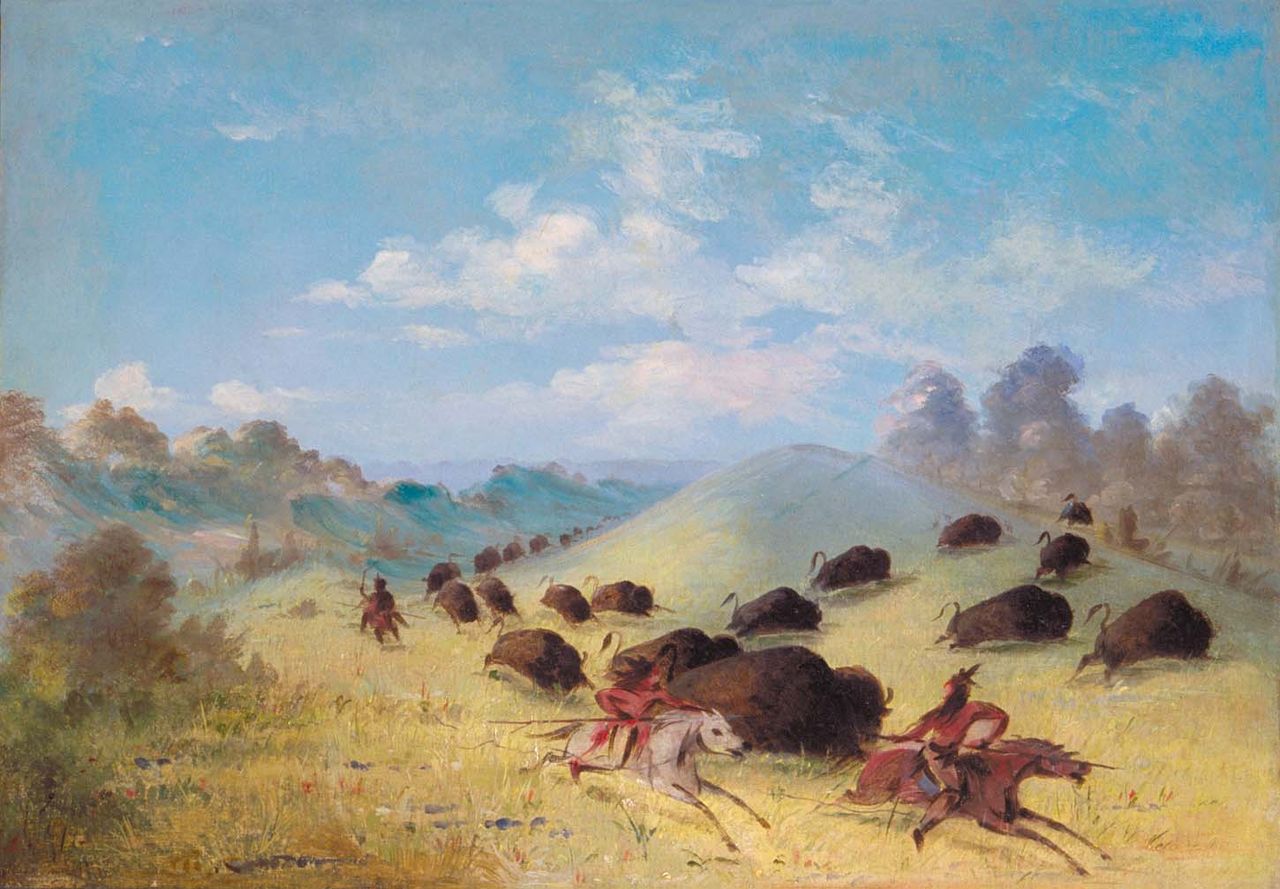
Comanche Indians Chasing Buffalo with Lances and Bows, by George Catlin.
Wetiko
Jungian analyst Paul Levy, in his seminal work on the origins of evil Dispelling Wetiko: Breaking the Curse of Evil brilliantly describes how humanity is suffering from:
a spiritual disease of the soul, a parasite of the mind, that is currently being acted out en masse on the world stage via a collective psychosis of titanic proportions. This mind-virus—which Native Americans have called “wetiko”—covertly operates through the unconscious blind spots in the human psyche, rendering people oblivious to their own madness.
Many traditions speak of a concept similar to that native American idea of wetiko. The Jewish- Christian gnostic mystic tradition, for example, draws on descriptions in the two-thousand-year old writings known as the Dead Sea Scrolls – found in 1945 at Nag Hammadi – of the archons, who have imprisoned the divine spark of human souls in material creation.
Likewise, the Bible speaks of a ‘counterfeiting spirit’ deceiving humanity. The Tibbetan Buddists speak of humanity trapped in the matrix of samsara, of suffering.
The essence of evil is that it helps continue the illusion of separation of souls from universal consciousness, from source.
This is perhaps the deepest symbolic interpretation of the story of Adam and Eve. The fall of matter from spirit, the loss of our connected state of original innocence.
Evil prevents us from recalling who we truly are. It separates us from each other and from whence we came.
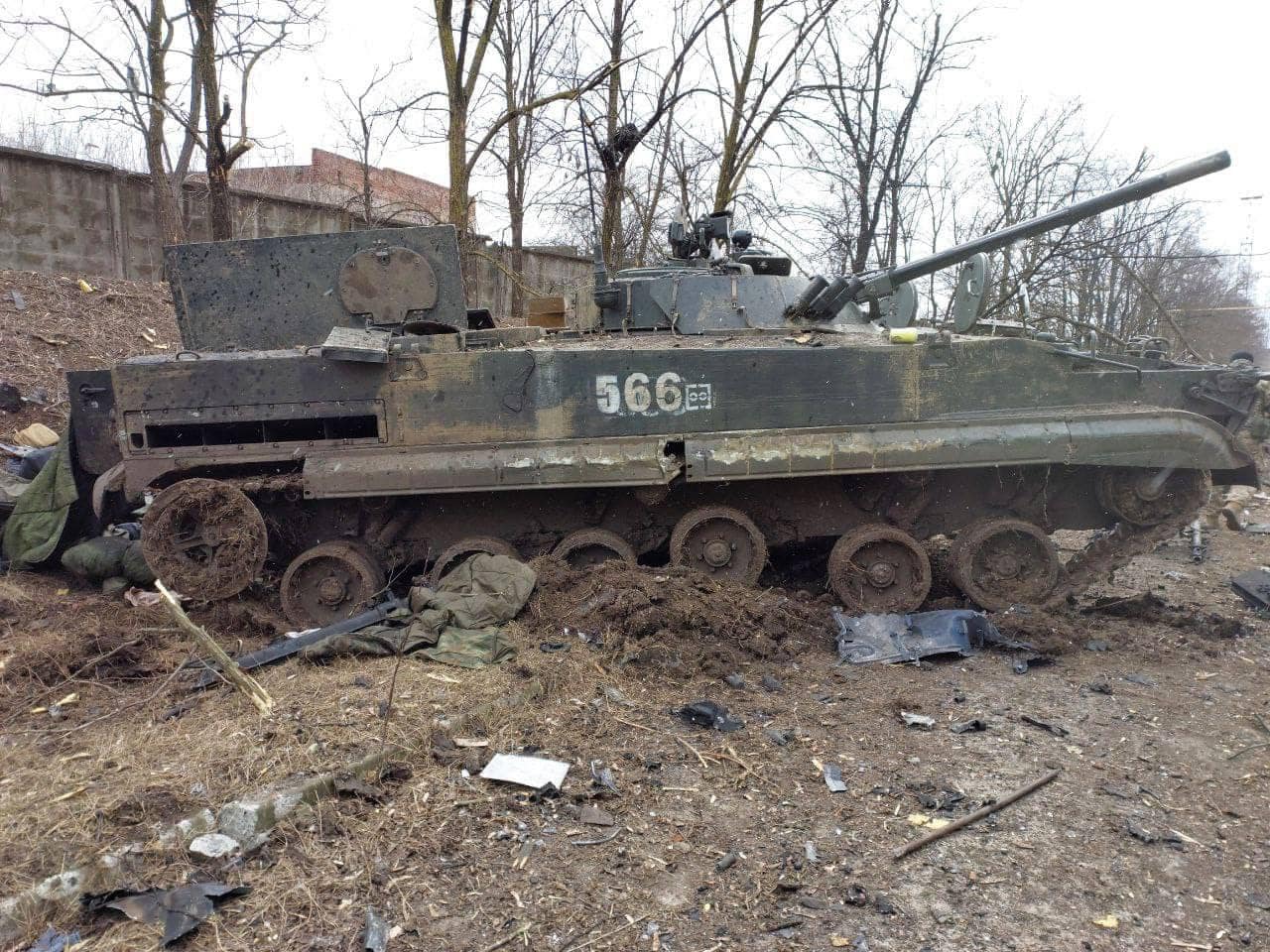
A destroyed Russian BMP-3 near Mariupol, 7 March.
What can be done?
First, on a macro level, the consciousness of the human race must evolve to a point where war is no longer acceptable, for any justification, under any circumstances.
Otherwise, paranoid, wounded, power hungry men, for it is almost always men who start wars, will inevitably find a justification for their actions.
As the astrophysicist Carl Sagan said:
Think of the rivers of blood spilled by all those generals and emperors so that in glory and in triumph they could become the momentary masters of a fraction of a dot.
It will be necessary to make war an absolute taboo and to ostracize those who participate in it. It may take many generations and even millennia for this to occur, but happen it must.
Peace must be a conscious choice for humanity. As Margaret Mead put it: ‘Our first and most pressing problem is how to do away with warfare as a means of solving conflict?’
There are some encouraging signs that in this first European war of the social media age, this may be happening – via the compassion and condemnation of the international community.
But this cannot only apply to wars started by the ‘other’ side, it must apply equally to wars started by or supported by the West in Iraq, Afghanistan, Libya, Syria and Yemen. Otherwise, Western hypocrisy and privilege continues.
For this to happen, a global shift in consciousness is required, if not rogue actors will easily take advantage of a more peaceful world.
It will also require a much more equitable world, one where justifiable grievances can be addressed and resolved equitably, before violence is resorted to.
Is it naive to believe such a world is possible? Perhaps, but in a world of nuclear weapons, we surely have no choice but to evolve and ensure our long term survival.
It will also be necessary to change the current structures of power, so that the concentration of political power no longer allows the egos of weak, wounded men to force wars and mayhem on their people.
As part of this evolution of human consciousness, some form of collective healing will be required to address the psychological wounds of the human race, the majority of which is traumatized as a result of centuries of war and oppression.
Otherwise, wounded man-children will continue to play out their traumas and pathologies on a world stage; handing these down to the next generation.
We would do well to remember the indigenous wisdom that the seven generations to come inherit the traumas of the past seven generations.
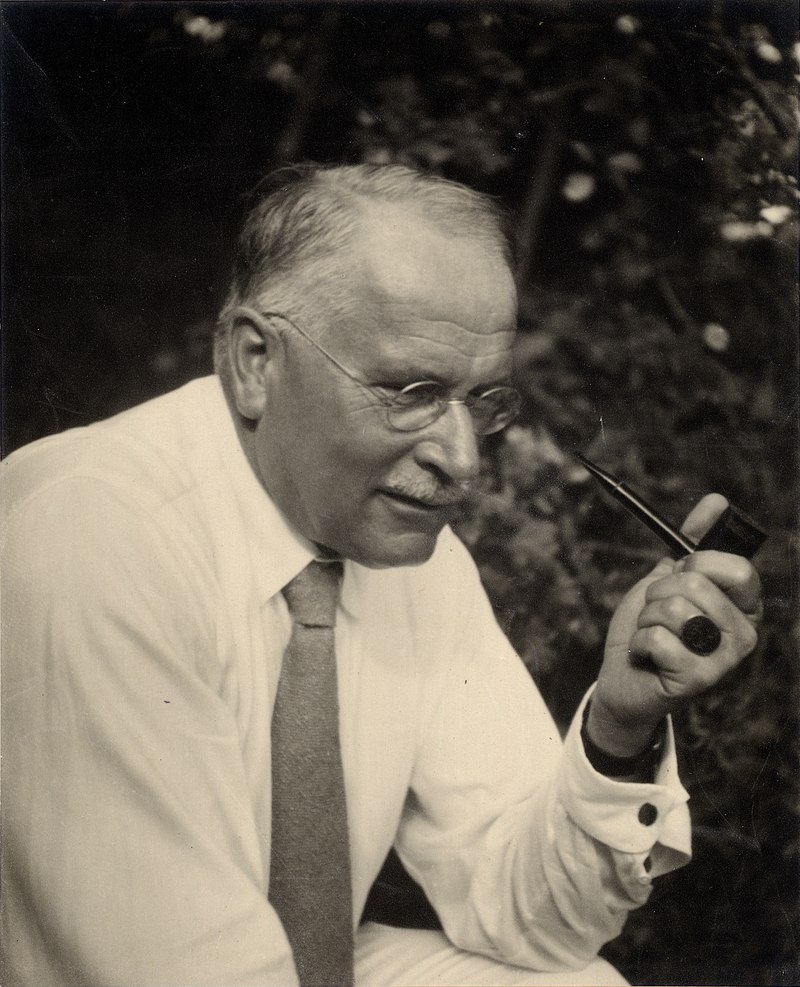
Carl Gustav Jung (1875-1961).
Personal Responsibility
Secondly, on a micro level, as individuals, we must take personal responsibility for the psychological awareness of our shadows. Becoming aware that we are not always as good as we imagine ourselves to be.
As Jung put it:
Unfortunately there can be no doubt that man is, on the whole, less good than he imagines himself or wants to be. Everyone carries a shadow, and the less it is embodied in the individual’s conscious life, the blacker and denser it is. If an inferiority is conscious, one always has a chance to correct it. But if it is repressed and isolated from consciousness, it never gets corrected.
We need to educate people on the need to make conscious what is unconscious, unhealed, unprocessed, unowned in them, before they find someone or something else to project their deepest fears and darkest thoughts on to. This is of the utmost importance for the survival of the human race, and not talked about nearly enough.
How can we expect peace in the world when we are at war with ourselves? If we want to change the world, we must first change ourselves.
Our outer world reflects the state of our own inner psyche, individually and collectively. That our currently external reality is in such dire shape reflects the inner collective reality.
If we do not mend our ways the great ritualistic dance, the great cosmic game of growth, death and rebirth, construction and destruction, with human beings as mere unconscious pawns, will begin again, as it has for many of the past millennia, but this time with the threat of nuclear annihilation.
Feature Image: Mushroom cloud from the explosion of Castle Romeo in 1954.


